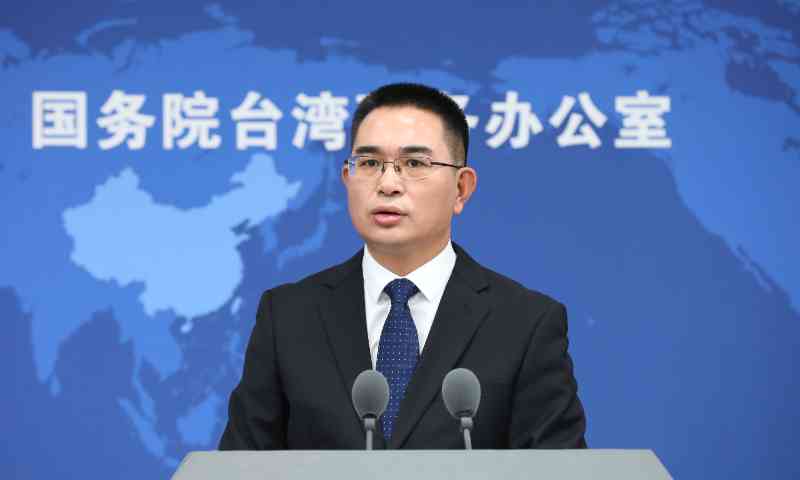
The Chinese government Wednesday threatened to place further trade sanctions on Taiwan if the ruling party "stubbornly" adheres to supporting independence, in a further escalation of the war of words as Taiwanese elections approach next month.
Taiwan's Jan. 13 presidential and parliamentary elections are taking place as China, which views the island as its own territory, has sought to force Taiwan to accept Chinese sovereignty claims.
Taiwan this month accused China of economic coercion and election interference after Beijing announced the end of tariff cuts on some chemical imports from the island, saying Taipei violated a trade agreement between the two sides signed in 2010.
That came after China said it had determined Taiwan had put up trade barriers in contravention of both World Trade Organization (WTO) rules and the 2010 trade deal.
Speaking at a regular news briefing in Beijing, Chen Binhua, spokesperson for China's Taiwan Affairs Office, said the "root cause" of resolving problems related to the 2010 deal was Taiwan's ruling Democratic Progressive Party's (DPP) adherence to the island's formal independence.
"If the DPP authorities are determined to persevere, continue to stubbornly adhere to their Taiwan independence position, and refuse to repent, we support the relevant departments taking further measures in accordance with the regulations," Chen said.
China detests both the DPP and its presidential candidate, current Vice President Lai Ching-te, who is leading in the polls, believing they are separatists.
Lai says he has no plans to change the island's formal name, the Republic of China, but that only Taiwan's people can decide their future. He has also repeatedly offered talks with China but has been rebuffed.
- Backlash over ZEC’s huge 2023 poll fees
- Yadah finish Chibuku Cup on a high
- Yadah finish Chibuku Cup on a high
- Backlash over ZEC’s huge 2023 poll fees
Keep Reading
China’s defeated republican government fled to Taiwan in 1949 after losing a civil war to Mao Zedong's communists, who founded the People's Republic of China.
Chen said Taiwan was "facing a crossroads" about where to go, and that anything can be discussed on the basis of opposing Taiwan's independence. He reiterated that Taiwan independence means war.
However, Chen also extended his "heartfelt thanks" to Taiwanese companies which had donated money to help deal with the aftermath of an earthquake in a remote part of northwestern China this month which killed 1,949 people.
But he made no mention of condolences by Taiwan President Tsai Ing-wen to China after the disaster and offers of help from her government.







